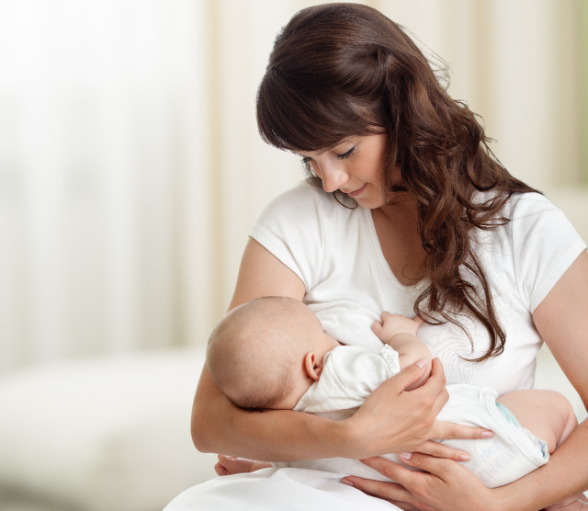Supplements of iodine tablets to breastfeeding mothers should provide babies with sufficient iodine. How much do iodine tablets influence the iodine concentration in mothers’ milk? How do they affect the iodine supply of babies? A study carried out for the FSVO explores these questions.

Representative, nationwide studies show that the iodine status of the Swiss population is low. In particular, women of childbearing age, pregnant and breastfeeding women, as well as young children are inadequately supplied with iodine. In this country the iodine concentration in mother’s milk of breastfeeding women is three times lower than in countries with an adequate iodine supply.

Many countries recommend iodine supplements during the breastfeeding period. However, their effectiveness is not proven. The optimal dose is not defined because the available data for deriving an average daily requirement for breastfeeding women is inadequate.
Aims of the Study
- To determine an estimated average daily requirement (EAR) of iodine during the breastfeeding period.
- To assess the dose-effect of a postnatal iodine supplementation on the iodine concentration in mother’s milk in breastfeeding women.
- To estimate the required maternal iodine supply so as to ensure an adequate iodine supply for breastfed babies.
Study design
To achieve these aims a randomised dose-effect quantitative study will be carried out with 24 exclusively breastfeeding women and their babies, Various iodine dosages (0 – 500 µg/day) will be tested with a crossover design in supplemented (n=12) and un-supplemented (n=12) women. For each dosage the average iodine uptake and elimination will be measured for the mothers (urine collected/24 hours and mother’s milk) and for their babies (urine in the nappies) and the retention calculated. The daily iodine intake required for a positive metabolic equilibrium during the breastfeeding period and in the baby will be determined. Likewise, the optimal dose supply of iodine, which is needed to normalise the iodine deficiency of the mothers and babies will be determined.
What do we have in mind?
The recommended iodine supply during the breastfeeding period varies between countries (e.g. 290 µg/d in USA, 260 µg/d in Germany and 200 µg/d in Switzerland and France) and needs to be harmonised. The WHO recommends an iodine supplementation of 250 µg/d when the supply from iodised salt is inadequate. This recommendation is valid for many countries worldwide, particularly in Europe. A postnatal iodine supplement regime of 150 µg/d is also recommended in countries with a sufficient iodine status, in spite of weaker evidence.
The results obtained from this study will be directly incorporated into national and international recommendations. The results will provide information on the adequate supply of iodine for breastfeeding women and babies as well as on the question of the need for iodine supplements during the breastfeeding period in iodine-poor and iodine-rich populations.
The results will also be published as scientific papers in pertinent scientific journals as open-access publications and presented at national and international symposia and conferences.
Ethics and data protection
The Study is approved by the cantonal ethics commission of the Canton of Zurich. All participating mothers will agree to a declaration of consent. The mother-child pair will be compensated for their participation in the Study. The Study will be registered in ClinicalTrials.gov.
Personal data are subject to data protection and are treated confidentially. All data will be anonymised, i.e. names and contact information shall be saved separately. All evaluations and analyses are carried out without reference to names and addresses. The resulting information is presented exclusively in anonymised form.
When will the Study be carried out?
The Study began in January 2021. The results and the final report are expected at the end of 2024.
Financing
The Study is financed by the Federal Food Safety and Veterinary Office (contract no. 714001461).
Who is carrying out the Study?
The Children’s Hospital Zurich (Eleonar Foundation) and the Laboratory for Human Nutrition at the ETH Zurich have been commissioned to carry out the Study.
(27.03.2023)
More Information
Last modification 27.03.2023




